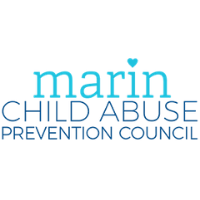
The worst of the COVID-19 pandemic may be behind us, but the effects of nearly three years of uncertainty, disruption, and loss are still rippling through our community. Health, education, and social service professionals everywhere are sharing how the pandemic and the ongoing struggle for racial justice have intensified the mental health crisis among children and adolescents, which was growing at an alarming rate even before the pandemic. Our community isn’t immune to this mental health crisis, and none of us can solve it on our own. But together, we can support children and families wherever they live, work, learn, play, and worship.
Dear CPI,
My 14-year-old niece (who we’re raising) has had several emotional outbursts at home, which isn’t like her at all. When I ask if something’s wrong, she says, “You wouldn’t understand,” and then isolates in her room. My 7-year-old son is aggressive one minute and then crying the next. When I ask him what’s going on, he shuts down. I don’t want to force them to talk, but I’m not sure what to do. How can I support them?
Jessie
Dear Jessie,
I’m glad you reached out and asked this question. Raising children is a hard job that can feel impossible some days, especially when we’re not sure what to do. Here are some tips to try:
Normalize big feelings. Many kids struggle with managing emotions, and sometimes they’re hesitant to talk about it, especially with their parents and caregivers. They might feel an intense emotion (“big feeling”) — scared, anxious, embarrassed, angry, ashamed, hopeless, or frustrated — but they don’t have a name for it and don’t understand why they’re feeling that way. Or, they might have experienced something difficult, but they avoid talking about it because they fear being misunderstood, judged, criticized, or even rejected. Try starting with a simple statement, “It’s OK to have big feelings and not know what to do with them. It happens to everyone, even adults.”
Give unconditional love and support, even when they don’t ask for it. Spend quality time together, talk about things that interest them, give affection and attention, engage them in interesting activities (even better if the activities help them express themselves), and give descriptive praise to show know you notice their efforts and successes. These are all simple yet effective positive parenting strategies that build strong relationships and reassure kids they matter and are loved. Creating a sense of safety and belonging at home makes a big difference for kids, especially if they’re struggling with other things, like school, friendships, or aspects of their identities.
Keep communicating. Some kids are reluctant to have heavy, serious conversations with their parents and caregivers, even if they’re dealing with heavy, serious issues. Yet it’s important to keep the lines of communication open. Try different conversation starters, such as, “What’s on your mind?” or, “What were the highs and lows of your day?” or even, “What are you reading/watching/listening to right now?” Then when they answer, stop what you’re doing, listen, acknowledge what they’ve said, and encourage them to keep sharing their thoughts.
Empathize before problem-solving. When children and teens are in emotional pain, it’s tempting to try to reassure them that everything will be fine, immediately engage them in problem-solving, or say the situation isn’t as bad as they think. While adults might do these things with good intentions, it could make kids feel dismissed or powerless and then less likely to open up. Simply saying, “I can see you’re really upset,” or, “I understand how you feel,” can have a calming effect. Then ask, “How can I support you right now? Do you want me to just listen, or would you like help thinking about what you could do?” Offering this choice (and respecting their decision) helps buildE children’s sense of “agency” or control over their actions, which opens the door to teaching problem-solving skills.
FINAL THOUGHTS: Helping children and teens manage big emotions can be stressful for everyone. During calm moments, teach and practice coping skills, such as deep breathing, coloring, journaling, exercising, giving positive affirmations (self-talk), or taking a break. If your family needs additional support, call 2-1-1 or talk with a parent educator, counselor, health care provider, teacher, friend, or another person you trust.
CPI's monthly parenting article provides tips for families raising children, based on the world-renowned Triple P – Positive Parenting Program, available in Sonoma County at CPI. If you have a question or idea for a future column, please email anneb@calparents.org
This article is created by Nicole Young, the mother of two children, ages 17 and 21, who also manages Santa Cruz County's Triple P - Positive Parenting Program. Scientifically proven, Triple P is available locally through the Child Parent Institute. Our classes are listed at calparents.org/classes.
EN ESPANOL
Es posible que lo peor de la pandemia de COVID-19 haya pasado, pero los efectos de casi tres años de incertidumbre, disrupción y pérdida todavía se están extendiendo por nuestra comunidad. Los profesionales de la salud, la educación y los servicios sociales en todas partes comparten cómo la pandemia y la lucha continua por la justicia racial han intensificado la crisis de salud mental entre los niños y adolescentes, que estaba creciendo a un ritmo alarmante incluso antes de la pandemia. Nuestra comunidad no es inmune a esta crisis de salud mental y ninguno de nosotros puede resolverla por sí solo. Pero juntos podemos apoyar a los niños y las familias dondequiera que vivan, trabajen, aprendan, jueguen y adoren.
Estimada Nicole,
Mi sobrina de 14 años (que estamos criando) ha tenido varios arrebatos emocionales en casa, lo cual no es usual para ella en absoluto. Cuando le pregunto si algo le pasa, dice: “No lo entenderías”, y luego se aísla en su recamara. Mi hijo de 7 años es agresivo un minuto y luego llora al siguiente. Cuando le pregunto qué está pasando, se cierra. No quiero obligarlos a hablar, pero no estoy segura de qué hacer. ¿Cómo puedo apoyarlos?
Jessie
Estimada Jessie,
Me alegro de que haya hecho esta pregunta. Criar a los hijos es un trabajo duro que puede parecer imposible algunos días, especialmente cuando no estamos seguros de qué hacer. Aquí hay algunos consejos para probar:
Normalice las emociones grandes. Muchos niños batallan con el control de las emociones y, a veces, dudan en hablar de ello, especialmente con sus padres y cuidadores. Pueden sentir una emoción intensa ("un sentimiento grande"): miedo, ansiedad, vergüenza, enojo, vergüenza, desesperanza o frustración, pero no tienen un nombre para eso y no entienden por qué se sienten de esa manera. O bien, pueden haber experimentado algo difícil, pero evitan hablar de ello porque temen ser malinterpretados, juzgados, criticados o incluso rechazados. Intente comenzar con una declaración sencilla: “Está bien tener grandes sentimientos y no saber qué hacer con ellos. Le pasa a todo el mundo, incluso a los adultos”.
Brinde amor y apoyo incondicionales, incluso cuando no lo pidan. Pasen tiempo de calidad juntos, hablen sobre cosas que les interesen, bríndenle afecto y atención, involúcrelos en actividades interesantes (aún mejor si las actividades los ayudan a expresarse) y bríndeles reconocimiento descriptivo para demostrar que usted nota sus esfuerzos y éxitos. Todas estas son estrategias de crianza positivas sencillas pero efectivas que crean relaciones sólidas y aseguran a los niños que importan y son amados. Crear una sensación de seguridad y pertenencia en el hogar marca una gran diferencia para los niños, especialmente si tienen dificultades con otras cosas, como la escuela, las amistades o aspectos de su identidad.
Siga comunicándose. Algunos niños son reacios a tener conversaciones serias e intensas con sus padres y cuidadores, incluso si están tratando con problemas serios e intensos. Sin embargo, es importante mantener abiertas las líneas de comunicación. Pruebe diferentes formas de iniciar la conversación, como "¿Qué tienes en mente?" o "¿Cuáles fueron los altibajos de tu día?" o incluso, “¿Qué estás leyendo/viendo/escuchando en este momento?” Luego, cuando respondan, deje de hacer lo que esté haciendo, escuche, reconozca lo que han dicho y anímelos a seguir compartiendo sus pensamientos.
Empatice antes de resolver problemas. Cuando los niños y adolescentes sienten dolor emocional, es tentador tratar de asegurarles que todo estará bien, involucrarlos de inmediato en la resolución de problemas o decirles que la situación no es tan mala como creen. Si bien los adultos pueden hacer estas cosas con buenas intenciones, es posible que los niños se sientan descartados o impotentes y, por lo tanto, menos propensos a abrirse. Decir simplemente “Veo que estás muy molesto” o “Entiendo cómo te sientes” puede tener un efecto calmante. Luego pregunte: “¿Cómo puedo apoyarte en este momento? ¿Quieres que solo escuche, o te gustaría que te ayude a pensar en lo que podrías hacer?”. Ofrecer esta opción (y respetar su decisión) ayuda a desarrollar el sentido de "voluntad personal" o control de los niños sobre sus acciones, lo que abre la puerta a la enseñanza de habilidades para resolver problemas.
REFLEXIONES FINALES: Ayudar a niños y adolescentes a manejar grandes emociones puede ser estresante para todos. Durante los momentos de calma, enseñe y practique habilidades de afrontamiento, como respirar profundamente, colorear, escribir en un diario, hacer ejercicio, dar afirmaciones positivas (hablar consigo mismo) o tomar un descanso. Si su familia necesita apoyo adicional, llame al 2-1-1 o hable con un educador de padres, un consejero, un proveedor de cuidado médico, un maestro, un amigo u otra persona de su confianza.
Esta columna mensual provee consejos para cualquier persona que esté ayudando a criar niños, basado en el programa mundialmente reconocido, el Programa de Crianza Positiva (Triple P), disponible para familias en el Condado de Santa Cruz. Si usted tiene una pregunta o una idea para una columna en el futuro, favor de enviarme un correo electrónico a triplep@first5scc.org.











